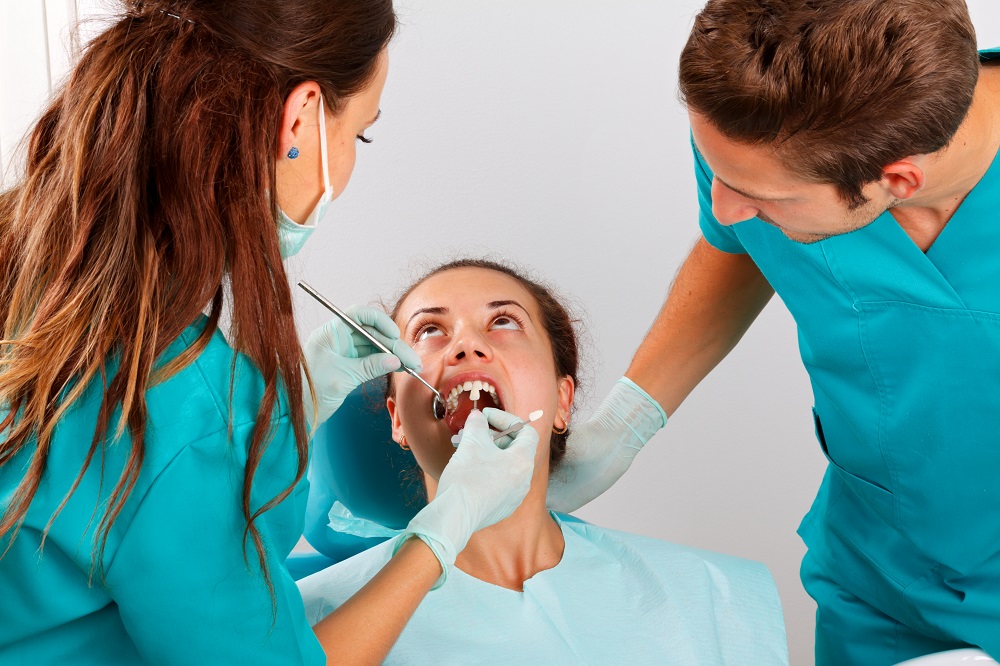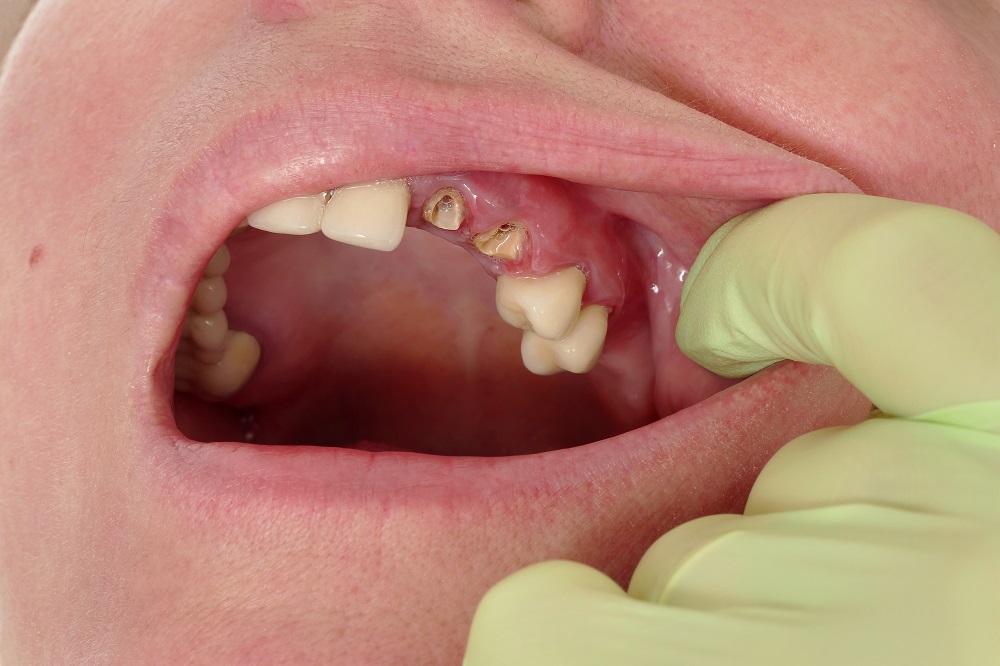- Toothache (occasionally)
- Gum bleeding
- Swollen, soft, puffy gums
- Dusky red gum (instead of pink)
- Receding gums
- Enlargement of the interdental spaces
- Bad breath
The most common cause of the disease is poor oral hygiene that leads to plaque formation. The invisible, sticky plaque that can transform into dental calculus after a while, releases bacterial products of metabolism and decay processes that stimulate the body's own defenses. The immune system tries to fight the bacteria. But the enzymes that are formed to attack the germs also destroy the patient’s own tissue resulting in loss of connective tissue and bone loss. This leads to gum bleeding and the formation of gingival pockets which include bacteria. The gums recede, and the teeth become loose.
Risk factors might be:
- Diabetes
- Hormonal changes (pregnancy, birth control pill, menstrual period)
- Older age
- Decreased immunity as a result e.g. of leukemia or HIV/AIDS
- Certain medications used to treat high blood pressure and epilepsy
- Too little saliva / dry mouth
- Use of tobacco
- Caries
- Narrow interdental spaces
- Anabolic steroids
- Deficiency of vitamin C
- Malnutrition
If gingivitis is not treated, it may progress to gum disease that spreads to underlying tissue and bone (periodontitis). Periodontitis mostly progresses in episodes: There are short phases, in which tissue is destroyed and longer periods, in which the disease does not progress or the tissue may even recover a bit. But it is not possible for the gums to grow back. Periodontitis is a serious condition which sometimes results in tooth loss.
Moreover, periodontitis and poor oral health might affect the overall health. It is not yet fully established scientifically, but periodontitis may also be associated with:
- Stroke
- Heart attack
- Lung disease
- Premature birth or having a baby with low birth weight
The earlier periodontitis is detected, the sooner treatment can start. It is important to stop the disease from getting worse to prevent loss of teeth.
It is important to treat gingivitis as soon as possible to prevent its progression to more serious gum disease, such as periodontitis, and tooth loss. Effective treatment requires professional care by a dentist in combination with oral hygiene at home.
The professional care includes:
- Evaluation of the condition
- Once or twice a year: thorough dental cleaning with dental instruments (“scaling”) to remove plaque and calculus; it can be uncomfortable, especially if the gums are already sensitive
- Instruction on the right brushing and flossing techniques
- Regular checkups to identify gingivitis, caries, etc.
- Fixing fillings, crowns or misaligned teeth that prevent good oral hygiene
As long as the patient continues good oral hygiene at home, gingivitis normally clears up after a thorough professional cleaning. Home care includes brushing the teeth at least twice a day and flossing each day to remove plaque – a necessary procedure because plaque forms within a few hours.


